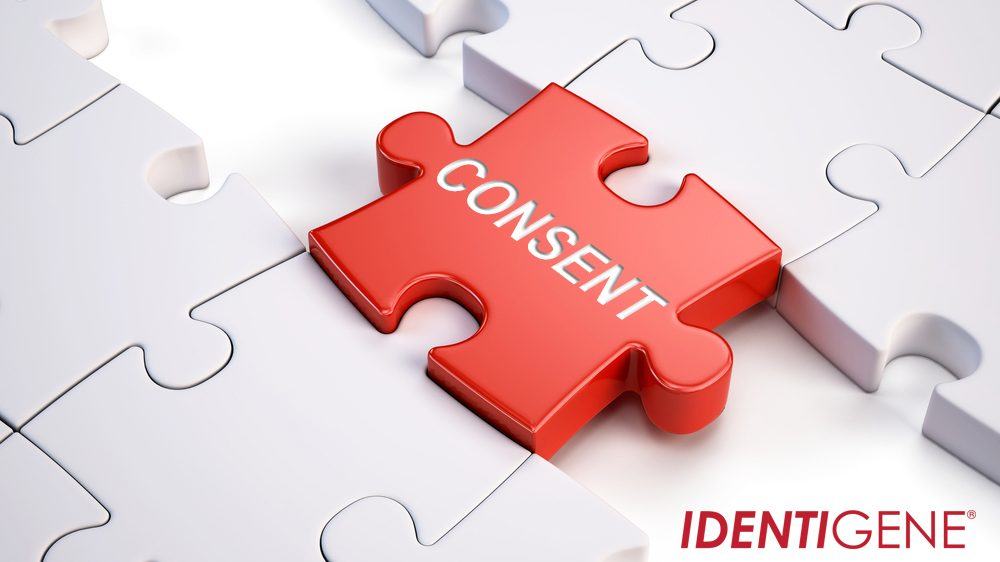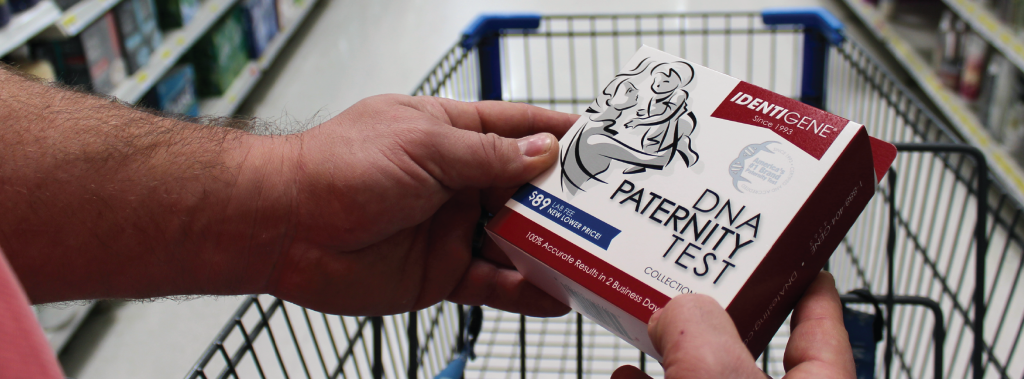As a top paternity testing lab, we often get asked how to do a DNA test secretly, without getting consent from participating parties. There are some situations where wanting to be sneaky about testing really can seem justified:
- If you have a partner that simply refuses to do paternity testing
- If an alleged father is in prison or otherwise unavailable for a test
- If you have a nagging relationship question and no one in your family wants to help find answers
- And so many more!
While we understand and sympathize with your frustration, there are some very strict rules in place for paternity testing such as who must or doesn’t need to know about and/or consent to a test. So can you do a secret test without consent? Here are some scenarios and some facts to go along with them.
‘I don’t want the mother to know I’m doing a DNA test with the child.’
If you are a man seeking paternity answers through a DNA test, you do not need the mother’s permission if you are listed on the birth certificate and are considered the legal father.
If you are not a legal parent or legal guardian of the child and the child is underage, you must get signed consent from the mother or other legal guardian. If the necessary consent isn’t provided up front, then the paternity testing cannot even start until the proper documentation is submitted.
‘My partner won’t test. Can I just send in a hair sample instead of a cheek swab?’
While hair specimens, blood, and even toothbrushes are accepted , paternity testing using DNA samples from these objects still requires consent from all participants. Using special specimens is also much more expensive. There is a $150 non-refundable fee just for determining whether or not the special sample is viable for testing. The quality of the DNA samples collected via cheek swabs and the ease with which the sample can be extracted is one of the factors that keep paternity testing affordable.
‘I’ve asked and asked, but my partner still won’t do a DNA test. Now what?’
You can do paternity testing without the father if he’s not willing to test, as long as the requirement for legal consent for a minor child and other participants is still met. We can test relatives, such as paternal grandparents, the child’s sibling, or even an aunt or uncle and fit the data from the DNA together like a puzzle in order to determine paternity. That being said, to maximize the chances of getting conclusive results, it’s important to have as many 1st degree relatives as possible participate, and the mother should also contribute her DNA. So although getting answers can be achieved this way, the test is much more expensive than a straight paternity test (lab fees start at $299), and there is a possibility of getting inconclusive results.
The Bottom Line about Paternity Testing without Consent
- The responsibility is on the customer who orders the test to ensure that all necessary consents have been obtained.
- Also keep in mind that home paternity testing results are not court-admissible, and so doing one in secret can have no legal benefit
- You can always petition the court and ask that your partner or former partner be compelled to test. A legal test can then be ordered
Complete honesty with a partner or former partner in these types of situations is always a practice we recommend. It’s not an easy subject to talk about, but the peace of mind you get through home paternity testing is worth it!
Learn more about what to do if a partner refuses testing.
Follow us on Facebook and Twitter! If you have questions about paternity tests or other DNA testing services, please contact our Client Support Center at 888-404-4363, Mon-Fri from 8:30 AM to 5:30 PM Eastern Time. Our friendly, expert representatives are ready and happy to help. Get answers anytime by visiting our Help Center.










